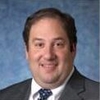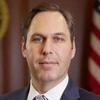Welcome to BARBRI, the trusted global leader in legal education. Continue to access the same expert-led Strafford CLE and CPE webinars you know and value. Plus, explore professional skills courses and more.
About the Course
Introduction
This CLE webinar will be led by plaintiff counsel, defense counsel, and a physician expert, and they will discuss the complexities of proving causation and damages when the plaintiff has been diagnosed initially with “mild” traumatic brain injury, from which a full recovery is usually expected, but alleges permanent damage, life altering symptoms, and an inability to return to his or her pre-injury lifestyle. Counsel will offer their guidance for getting the best result for their respective clients in these highly contested matters, and our physician expert will provide insights about the medical evidence each side should consider.
Description
Brain injuries are complex, and initial diagnosis can be difficult. “Mild” traumatic brain injury is a medical term, not a legal term. Those diagnosed with mild TBI may assert permanent, life-altering brain damage even if he or she did not lose consciousness, did not have extensive physical injuries, the vehicle was relatively unscathed, or symptoms developed slowly. But proving the connection between mild brain injury and severe symptoms can be challenging and requires method and order. Moreover, plaintiffs must overcome the name of the diagnosis (“mild”) and defenses that may be easier for juries to understand.
Defendants typically challenge causation and damages. They may seek to show that plaintiffs have been misdiagnosed with permanent injury from which no recovery is possible and/or that plaintiff’s symptoms arise from a different or pre-existing condition that the jury can more easily comprehend. Indeed, “mild traumatic brain injury" may instead be "post-concussion syndrome," which has a much better prognosis. Thus, the terminology used to describe plaintiff’s condition is often a fundamental issue in the litigation.
In these highly contested and complex cases, discovery can be an expensive battleground. The defense may well seek to uncover problems in the plaintiff’s functioning before the accident, evidence of prior injury, psychological issues, the abuse of prescription or non-prescription drugs, social issues, and/or alcohol problems to explain cognitive or emotional injury-anything to point to alternative causation. Both sides will want experts who might support why certain discovery is or is not relevant or proportional.
Listen as this esteemed panel discusses the complexities that both plaintiff and defense will want to keep in mind when litigating “mild” traumatic brain injury cases.
Presented By

Dr. Kaplan has gained his experience treating patients in many clinical settings who have complex pain and disability issues involving neurolgical, orthopedic, rheumatological, and medical diagnoses. He also has extensive medicolegal and forensic experience providing medical damages, medical necessity, and causation opinions for plaintiffs, defendants, and state/federal governmental entities.

Ms. Scanlan received her undergraduate degree from Villanova University in 2007, graduating magna cum laude. She graduated from Loyola University Chicago School of Law in 2010, where she was on the Dean’s List. Ms.Scanlan joined the firm as an associate attorney in November 2010 and was named partner in January 2019. She concentrates her practice in construction litigation, transportation law, insurance coverage, representing physicians and other health care providers in professional negligence actions, and general insurance defense. Ms. Scanlan is an active member of the Chicago Bar Association, the Illinois Association of Defense Trial Counsel, and the Women’s Bar Association.

Mr. Siporin is a trial lawyer that has dedicated his entire career to securing justice on behalf of injury victims. He concentrates his practice in construction negligence, transportation crashes, product liability, nursing home neglect and medical misdiagnosis. Over the past 15 years, Mr. Siporin has obtained more than $100 million in verdicts and settlements on behalf of his injury victim clients.
-
This 90-minute webinar is eligible in most states for 1.5 CLE credits.
-
Live Online
On Demand
Date + Time
- event
Thursday, May 29, 2025
- schedule
1:00 p.m. ET./10:00 a.m. PT
I.Introduction
II.Diagnosis challenges
A. Assessment of consciousness levels
B. Glasgow coma test assessment
C. Galveston orientation and amnesia test
D. Imaging
E. Finding the right physicians
F. Mild TBI vs. post-concussive syndrome
III. Litigation challenges
A. Plaintiff’s brain injury has led to personality changes and the jury does not like plaintiff
B. Discovery
C. Experts
D. Legal standard of causation and its importance in traumatic brain injury cases
E. Distinguishing causation from fault
F. Linking injury to symptoms
G. Overcoming lack of physical injury or property damage
IV. Causation defenses
A. Event could not /did not cause permanent brain injury
B. Significance of plaintiff's continuing to drive
C. Plaintiff does not have permanent brain injury
D. Plaintiff’s condition is treatable and plaintiff will improve
E. Other conditions, not defendant's acts caused plaintiff's injuries
1. Preexisting condition
2. Psychological condition
3. Addiction
4. Congenital/genetic defect
5. Other disease
6. Prior brain injury
7. Old age
The panel will review these and other key issues:
- What are the leading causes of traumatic brain injury?
- What factors weigh for and against taking any particular case to trial?
- What should one look for in a police, emergency room, paramedic, fire department or other first responder report?
- How can plaintiffs limit overreaching discovery that may ask for data decades old?
Unlimited access to premium CLE courses:
- Annual access
- Available live and on-demand
- Best for attorneys and legal professionals
Unlimited access to premium CPE courses.:
- Annual access
- Available live and on-demand
- Best for CPAs and tax professionals
Unlimited access to premium CLE, CPE, Professional Skills and Practice-Ready courses.:
- Annual access
- Available live and on-demand
- Best for legal, accounting, and tax professionals
Unlimited access to Professional Skills and Practice-Ready courses:
- Annual access
- Available on-demand
- Best for new attorneys
Related Courses
Recommended Resources

Making Continuing Education Work for You, Anytime, Anywhere
- Learning & Development
- Career Advancement

Getting the Most Out of BARBRI Resources
- Learning & Development
- Business & Professional Skills
- Talent Development


